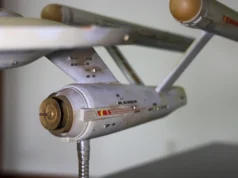
Music is many things to many people, whether it is to keep you company while you’re alone or to process your emotions or just make you feel good. Music is everything for a lot of people but have you ever wondered how and why it moves us?
Music has evolved over the years but how it relates to our emotions haven’t changed much, as we will likely still respond to it regardless of how improved the sounds and beats may have gotten.
With music, you can process emotions such as happiness, sadness, anger, grief, and more. There are several kinds of research to give us an idea of how and why music moves us, one of which is the one done at Dartmouth University. The research was carried out on Dartmouth undergraduates and members of a Cambodian hill tribe and there seemed to be a connection between music and movement. A neuroscientist at the university puts it this way: “The kinds of dynamics you find in movement, you find also in music and they’re used in the same way to provide the same kind of meaning,”. The same research also found that the structure that binds both music and movement was evident within and across cultures.
Music and dance may walk together most times but they are two different things and dance is only our response to how the music makes us feel.
A cognitive psychologist from McGill University known as Daniel Levitin did an extensive study on music, which birthed two books and an article on The Psychology of Music: Rhythm and Movement. This published study shows how the pulse, tempo, and rhythmic patterns of music contribute to how listeners feel and react to it.
It also further addresses the rhythm, meter, movement, synchronization, entrainment, the perception of groove, and more of what makes music move us. The conclusion of this shows how music has evolved in the last two decades and the research on it has also expanded. This is putting into consideration the birth of digital music, which has given more room to experiment and explore music in all its dimensions.
The birth of digital music has changed how music is created and distributed. Streaming music has gone from a phonograph to Spotify, from listening on a radio or cassette to taking it with you everywhere you go. There is also the possibility of converting music from one form to another, such as from YouTube to MP3 or MP4 with available tools like the mp3shack website.
Music will always be here to stay. It has been here for centuries and will forever be. The only difference will be how it is created and distributed, which depends largely on technological advancements and the creativity of music producers. This also means that how and why music moves us may not always be the same, as we respond to music in different ways over time.












